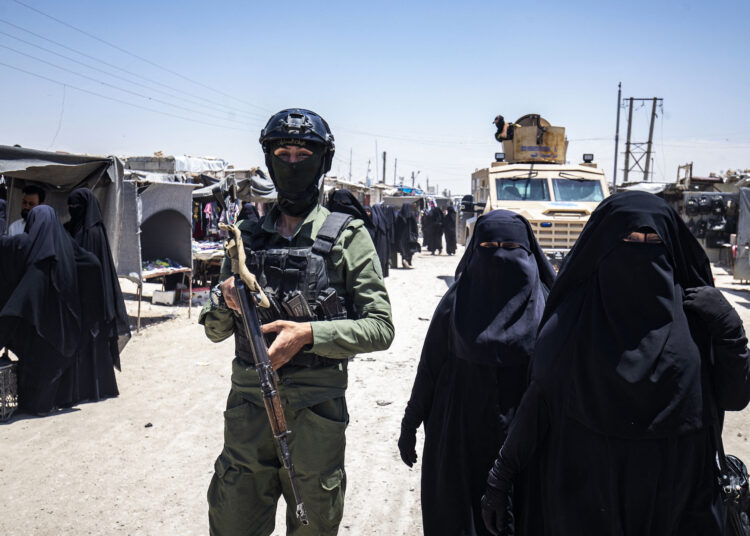Levent Kenez/Stockholm
Ankara has announced its intention to push for the repatriation of European prisoners affiliated with ISIS (Islamic State in Iraq and Syria, also known as DAESH, using the Arabic acronym) and their family members from camps and prisons in Syria to their country of origin, following the establishment of a new governance structure in the war-torn country. This move aims to shift the responsibility for managing these facilities from the Syrian Democratic Forces (SDF) to the emerging Syrian administration.
By advocating for this transition, Turkey seeks to undermine the SDF, which is primarily composed of members of the People’s Protection Units (YPG). Ankara has designated the YPG as the Syrian branch of the Kurdistan Workers’ Party (PKK), an outlawed organization in Turkey and much of the West. The Turkish government views the SDF’s control over camps and prisons in northeastern Syria as a strategic advantage and aims to eliminate this leverage, which it believes strengthens the position of the YPG/PKK in the region.
Turkish Foreign Minister Hakan Fidan, in a live interview with NTV on December 13, stated that European countries must take responsibility for repatriating their citizens currently held in prisons and camps in Syria. Fidan also accused the YPG of leveraging the ISIS issue to blackmail the international community, asserting that this tactic has provided the group with undue influence and support.
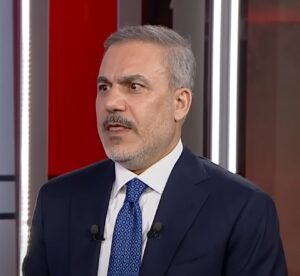
Fidan highlighted the urgent need for international cooperation to address the complex situation in camps and prisons holding ISIS-affiliated individuals.
“There are thousands of people, including women and children, living in ISIS-affiliated camps. Most of them are Iraqis and Syrians. Iraq and Syria need to come together and decide what to do with these individuals as soon as possible,” Fidan said.
He pointed to the notorious Al-Hol camp, which houses a mix of civilians and individuals connected to ISIS, as a critical issue. “Perhaps one of the first steps to be taken after stability is established in Damascus is to develop a solution for Al-Hol, especially regarding Iraqis and Syrians there. This is a civilian population and their situation demands an urgent resolution.”
Fidan also addressed the broader issue of ISIS members from other nations, many of whom are detained in prisons. He emphasized the need for strategic planning: “We need to evaluate what kind of strategies should be implemented for the detention and long-term handling of these ISIS members. This requires phased and gradual planning, and international cooperation is crucial.”
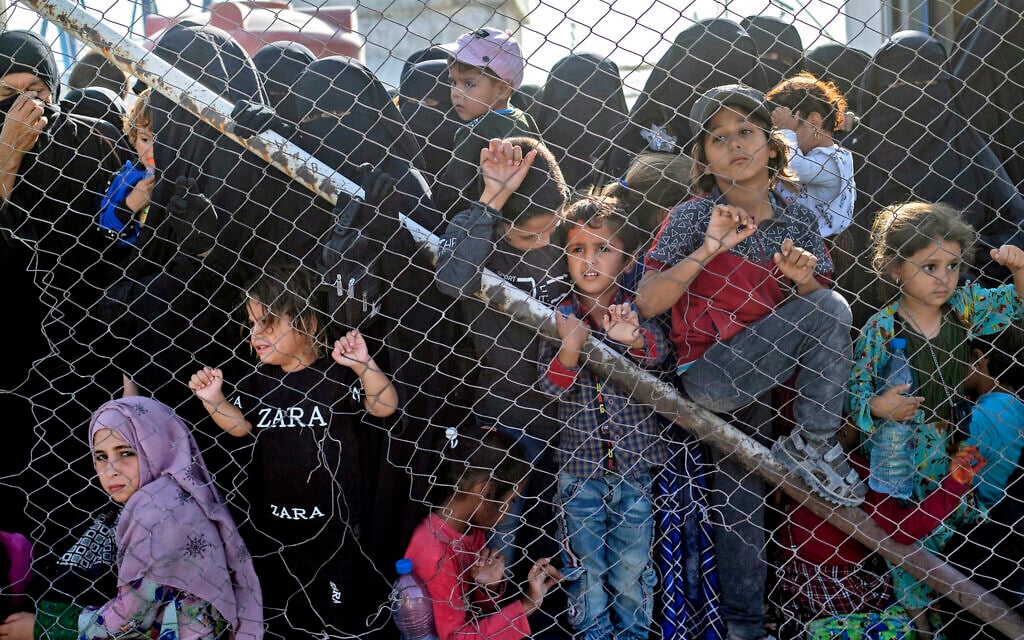
He accused Western countries, particularly European states, of neglecting their responsibilities. “Let’s call it hypocrisy or opportunism at its finest — Western countries have been using another terrorist organization as jailers to avoid repatriating their ISIS-affiliated citizens. The role assigned to the PKK here is essentially that of a prison guard. The support they’ve received so far is largely due to this role.” Fidan stressed that this strategy has collapsed, leaving European states with no choice but to take back their nationals. “Whether there are 10, 20, 30, or 50 of them, European countries must repatriate their ISIS fighters and families. As for Iraqis and Syrians in the camps, their governments must [also] take responsibility. For others, perhaps an international or regional mechanism can be developed, involving dialogue with the Syrian government to find a solution.”
The majority of foreign fighters and family members held in prisons and camps are citizens of Iraq, Russia, China and Central Asian countries.
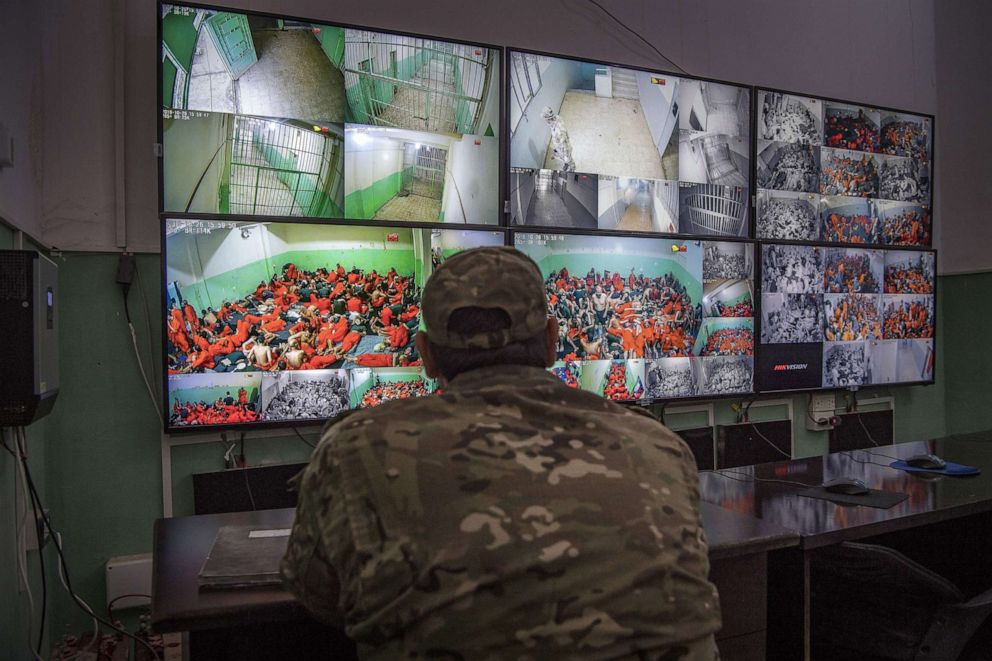
Fidan compared the prisons in Syria to the facility in Guantanamo Bay, Cuba, where the United States detained al-Qaeda militants following the September 11, 2001 attack, stating that European countries are now using Syria as a place to detain their ISIS-affiliated citizens in a similar fashion.
According to Amnesty International, thousands of individuals detained after the defeat of the Islamic State (ISIS) in 2019 are facing severe human rights violations and dying in large numbers due to the inhumane conditions in the camps and detention facilities in northeastern Syria. Amnesty’s new report reveals that more than five years after the purported temporary defeat if ISIS, tens of thousands remain arbitrarily and indefinitely detained in these facilities.
An estimated 11,500 men, 14,500 women and 30,000 children are currently held in at least 27 detention facilities and two major camps, Al-Hol and Roj. Amnesty claims that the US is involved in many aspects of the detention system where there continue to be reports of human rights abuses. These detainees are allegedly subjected to harsh conditions, including torture, such as severe beatings, the use of stress positions, electric shock and gender-based violence.
Amnesty emphasizes that the vast majority of detainees are being held in violation of international law, with no clear legal process or justification for their detention. The international community has been urged to take action to address the suffering of these individuals and to push for accountability regarding the systemic violations occurring within these camps and facilities.
Washington has long pressured European governments to take action and repatriate their citizens, often including the children of ISIS members, back to their home countries. The US-backed SDF, led by the Kurdish YPG, has called on Western and other governments to take their citizens from the camps in Syria and prosecute them in their home countries.
European countries have shown little willingness in this regard, and many of the fighters who had European citizenship had their citizenship revoked.
Turkey’s main concern, however, is that the YPG gains prestige in Europe by holding ISIS prisoners. Turkey believes this could bolster the YPG’s international standing, despite their designation as a terrorist group.
General Abdi Mazloum, the commander-in-chief of the SDF, expressed concerns in an interview with Sky News on December 14 regarding the growing threat from Turkish-backed rebel groups. He revealed that ongoing clashes with these forces have forced the SDF to suspend anti-ISIS operations in Syria, as they are unable to focus on counterterrorism efforts while dealing with intensified fighting.
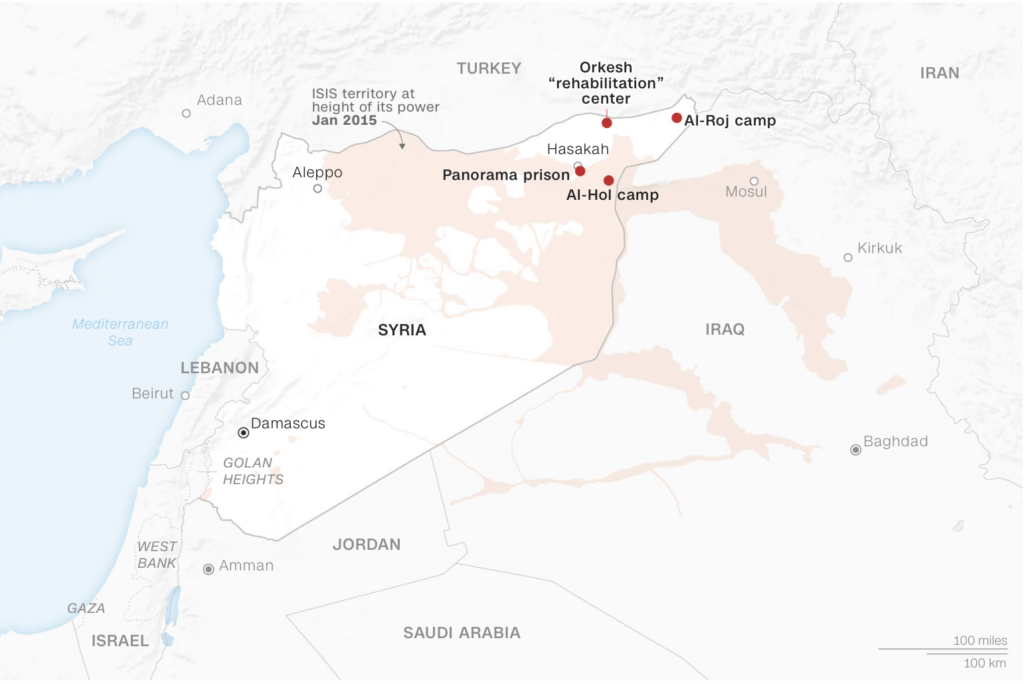
Mazloum explained that the suspension of joint operations against ISIS is a result of the military reality on the ground, where both the SDF and the US-led coalition are preoccupied with the escalating conflict with Turkish-backed groups. As a result, ISIS has gained greater freedom to operate, and Mazloum warned that the already volatile situation could lead to escapes from the detention camps housing ISIS prisoners.
Mazloum also noted that the Turkish-backed forces pose a significant challenge for the SDF, as Turkey views the Kurdish groups within the SDF, particularly the YPG, as terrorists linked to the PKK, a separatist group. Mazloum emphasized that if the clashes with these forces continue, it would play into the hands of ISIS, allowing the group to exploit the chaos and grow stronger.
Ankara has a strong influence over the new administration in Syria, led by Hay’at Tahrir al-Sham, which managed to oust President Bashar al-Assad on December 8. Using this influence, Turkey hopes to push back YPG and PYD forces in the new era. While this approach puts Ankara at odds with the United States, Turkey is optimistic that the evolving situation on the ground could work in its favor.
However, Turkey’s record in the fight against ISIS is far from exemplary, particularly when it comes to dealing with foreign fighters. During the rapid expansion of ISIS in Iraq and Syria after 2014, many foreign fighters entered Syria through Turkey. At the time, Turkey directly supported the ousting of Assad’s regime and sought to suppress Kurdish forces, aligning with some of ISIS’s broader objectives. However, as ISIS was defeated by SDF forces and international pressure mounted, Turkey was forced to adjust its policies.
Turkey’s handling of ISIS-linked detainees at home also raised concerns internationally. Critics accuse the President Recep Tayyip Erdogan government of operating a “revolving door” policy, where ISIS suspects are detained briefly and then released with minimal processing.
In 2022, Turkey’s Directorate General of Migration Management released rare statistics regarding the deportation of “foreign terrorist fighters” from the country. While the directorate did not specify any affiliation with an organization, it is widely believed that most of them were jihadist militants who had traveled to Syria to fight.
The statement, issued by the Directorate General, part of the Ministry of the Interior, included wording that appeared to target the US and EU. According to their figures, a total of 9,000 foreign terrorist fighters from 102 countries have been deported since 2011. Among them, 1,168 fighters were from the US and EU countries, as part of Turkey’s security efforts both within its borders and across them. However, the exact number of 9,000 deported individuals raised some questions about the accuracy of the statistics.
The directorate clarified that these deported individuals were foreign terrorist fighters who had traveled from their home countries to join groups such as the PKK and ISIS.

